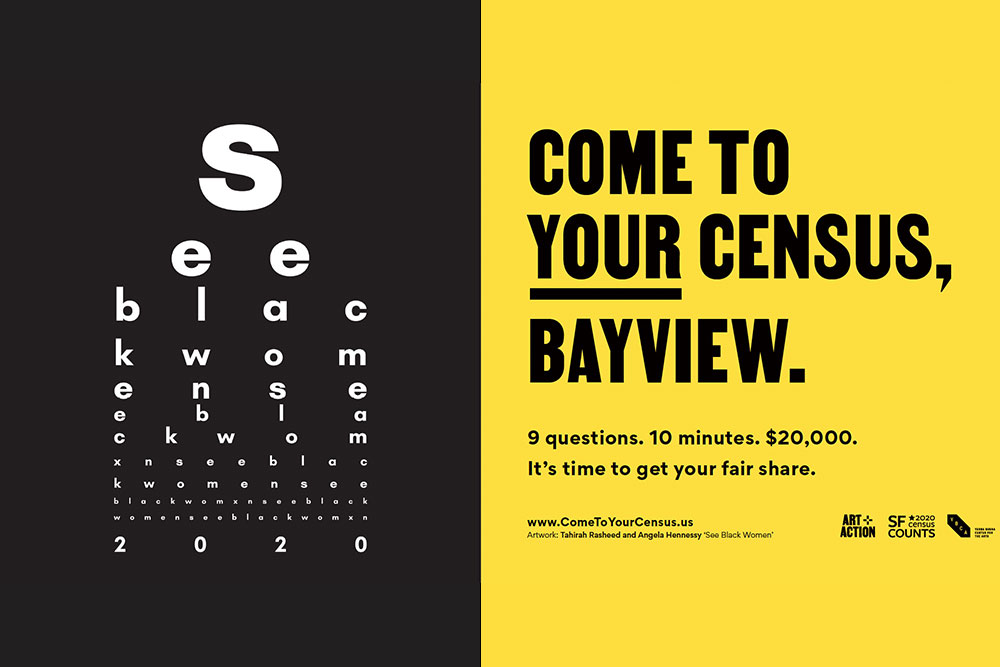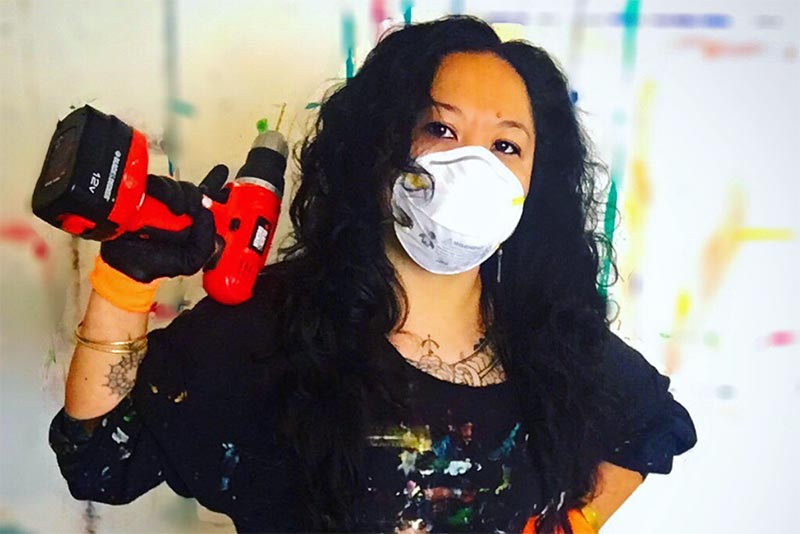Wed January 7th Open 11 AM–5 PM
9 Questions with Lukaza Branfman-Verissimo
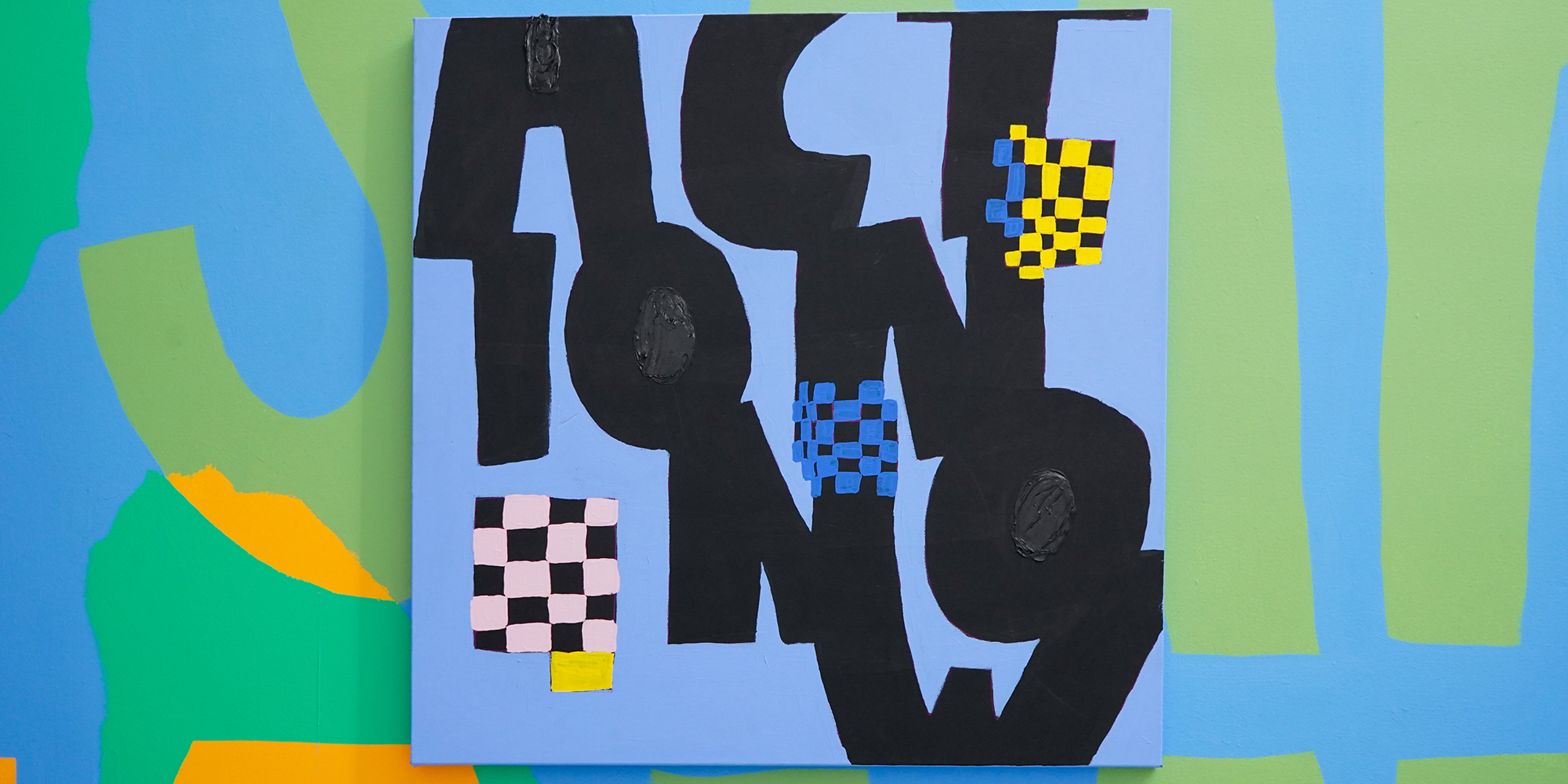
As part of the digital experience Come to Your Census: Who Counts in America? presented under the umbrella of the Art+Action Coalition’s COME TO YOUR CENSUS campaign—powered by San Francisco’s Office of Civic Engagement & Immigrant Affairs (OCEIA)—YBCA and Art+Action have asked participating artists to respond to prompts around activism, community-building, and art, in the format of the Census’ 9 questions.
Lukaza Branfman-Verissimo is a queer, Jewish-American, African-Brazilian artist, activist, educator, storyteller & curator who lives and works in Oakland, CA. She has exhibited both nationally and internationally. Branfman-Verissimo has been awarded residencies and fellowships at the Vermont Studio Center, ACRE Residency, Kala Art Institute, Dos Rios Residency and CENTER. She is the Co-Founder and Lead Curator at Nook Gallery, a gallery in her home kitchen.
For Come to Your Census, YBCA and Art+Action commissioned Branfman to create Who Gets Counted? a site-specific installation in YBCA’s galleries. This work uses bright colors and bold texts to share Branfman’s artistic platform and illuminate the voices around her. Who Gets Counted? encourages collective action and empathy for those who are often erased.
What is your first experience in seeing/feeling the impact of art + activism?
Going to marches with my parents and chosen family and friends as a little kid in Los Angeles. Making protest signs was always a family ritual prior to the march or protest. I think the combination of making a piece of art that expresses what you are marching for and the act of marching, being in community, singing, and chanting, allowed me to see and feel the power that our art has in the world.
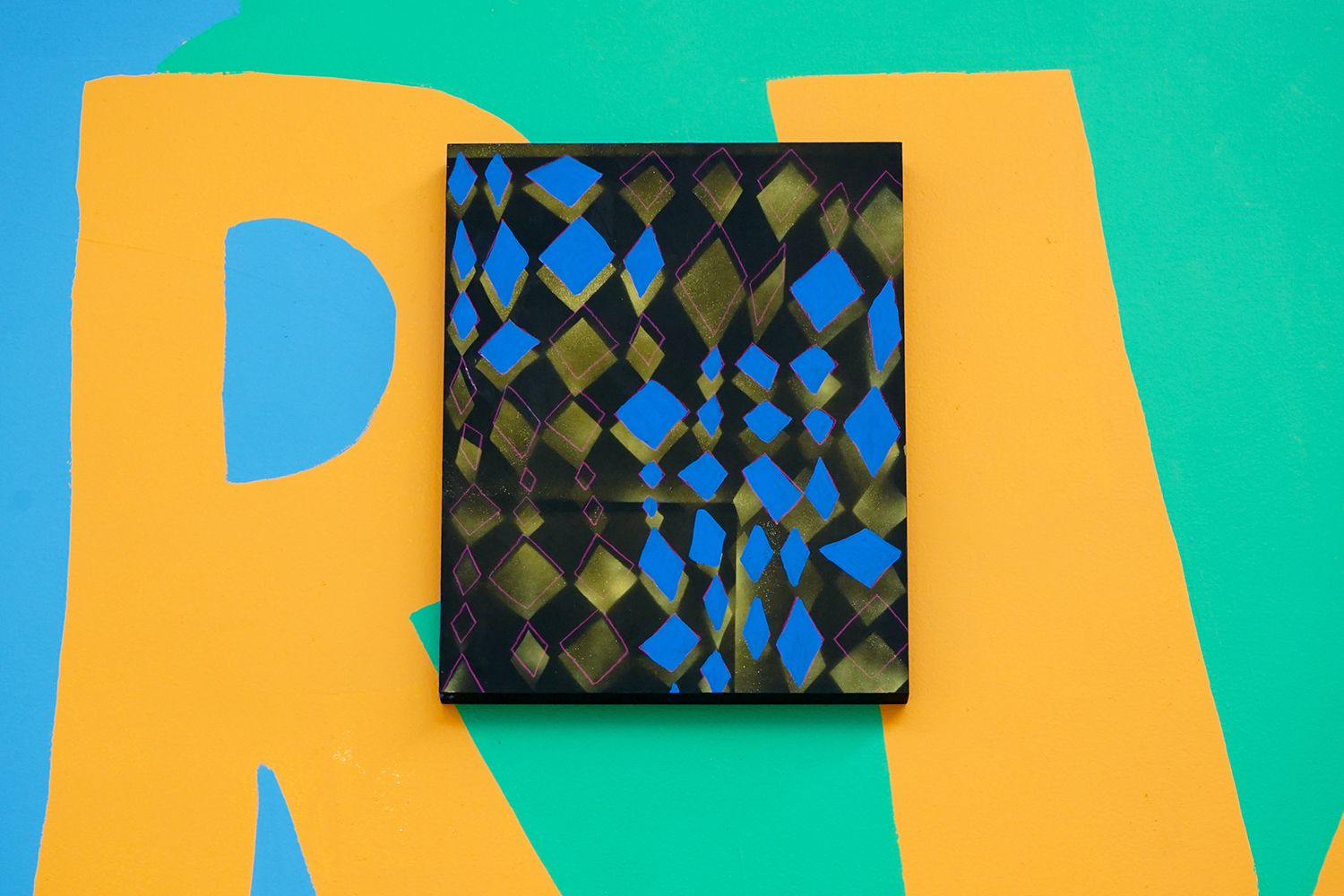
What makes you feel a deep sense of belonging?
When I get to be in community with folks who echo what I believe in, fight for, identify in the ways I do, are prioritizing the issues, histories, people, I put first–Black, Indigenous, Queer, Trans, Gender non-conforming, people of color, Immigrants, working class folks, low income, educators, and community activists.
What do you wish for your community?
I wish that all the Black-, artist-, People of Color-runned spaces and businesses could thrive and be supported! I wish that our city wasn’t getting eaten alive by the tech world. I wish that all the empty homes could be occupied by current houseless folks, especially Black moms. I wish our Black population wasn’t disappearing.
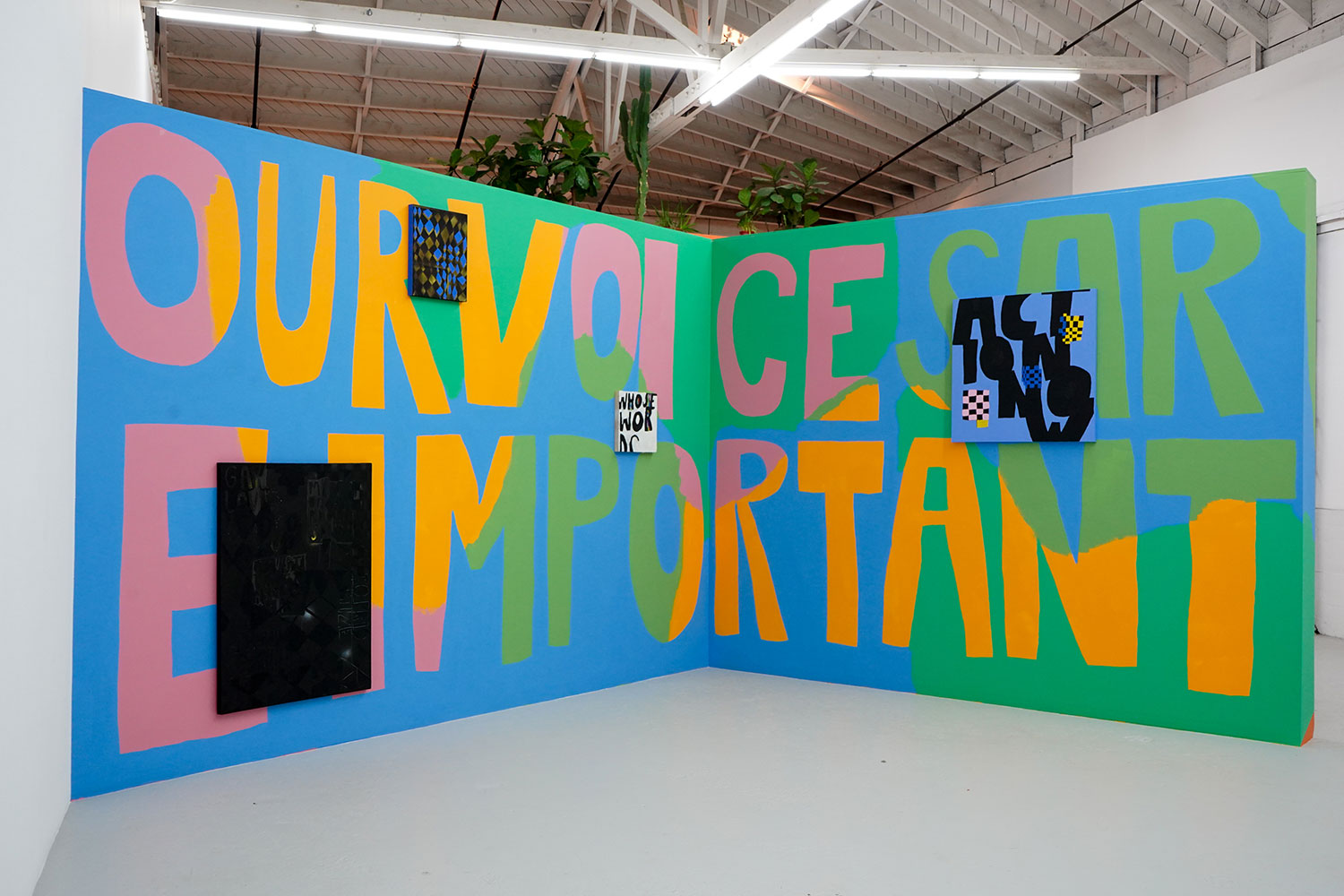
Who are the most vulnerable members of your community and how do you support them?
As an artist, curator, educator, and community organizer, I always prioritize supporting, showing, and working with Black, Queer, Trans, Womxn, and Gender non-conforming folks. Too often I see Black folks being excluded from art spaces and decision-making within the Bay Area. I support them, us, we in every aspect of my work.
What’s at stake in contemporary art when creating work that pertains to social and political reform?
The contemporary art world needs to wake up and realize that social and political art is what we need to prioritize, support, fund, and give space. Our work creates power!
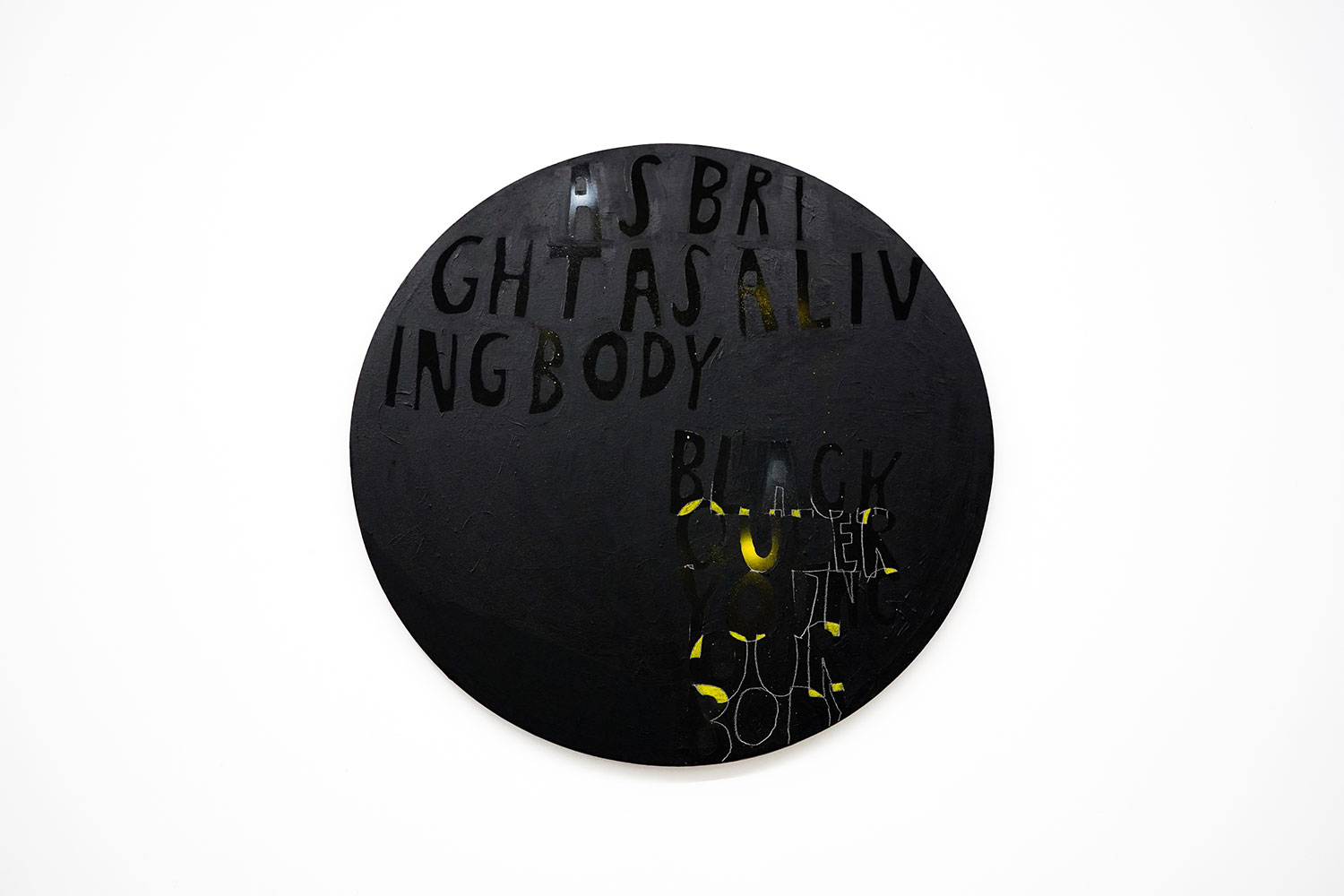
What are some strategies for breaking through political disengagement, distrust or distraction?
To make sure that the folks that feel disengaged are included in discussion-making. We feel disengaged because our voices are not being listened to. Listen to us, trust us, see us, give us the floor, love us.
What would push you past your fear?
If there was more prioritization in wanting to hear what I and my people would contribute.
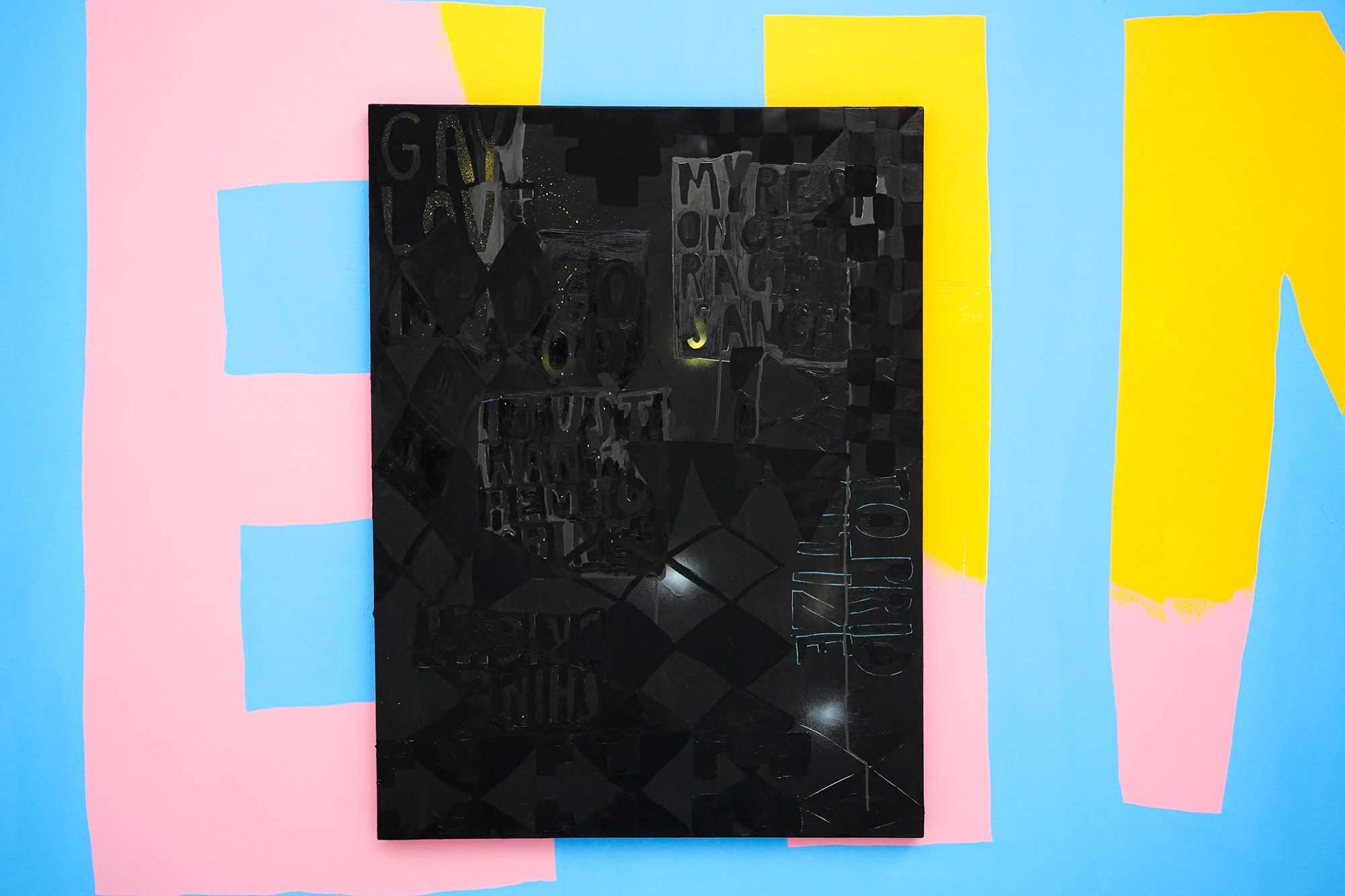
What is at stake for you and your community by taking the census?
A future lack of representation and funding in communities that need the most support. Governmental support for Black and Brown communities and low income folks. Funding for schools, libraries, parks, community centers, school lunches, low income housing in Black and Brown neighborhoods.
What, if anything, is worth fighting for?
Right now I am fighting for disability justice, the release of incarcerated folks, housing for house-less, rent suspension, fair treatment of trans community members, more representation by BIQTPOC (Black, Indigenous, Queer, Trans, People of Color) artists within art spaces, museums, institutions and non-institutional spaces.

